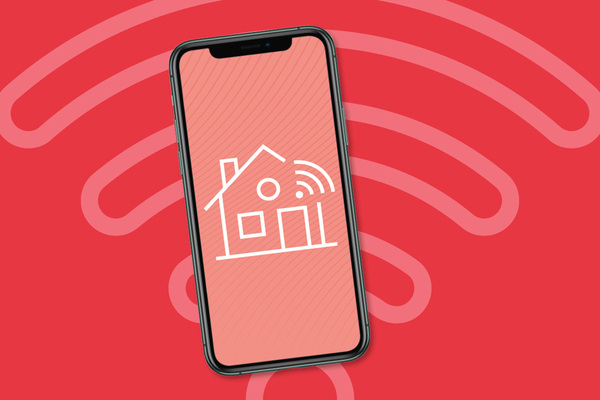You are viewing 1 of your 1 free articles
The future for housing associations? Homes for homeworkers
The world has changed for good, so we need to think carefully about the work needs of staff and tenants. Our differentiator as a sector could be to develop a reputation for delivering high-quality office/retail-to-residential conversions, argues Nick Atkin
It seems like wherever you go at the moment, one of the main talking points is what work will look like in a post-COVID-19 world. Even for those who have returned to an office, it’s not the same place people left on 20 March. With many European countries experiencing a second wave of the virus, the signs are clear that we can’t be complacent about COVID-19 and its effects – it is now mandatory for French office workers to wear face coverings.
COVID-19 has been a catalyst that has enabled people to move to very different ways of working. The first few months of lockdown catapulted Yorkshire Housing forward to where we had planned to be in 2023 in our approach to work. What many said was impossible became normal in just a few weeks.
Lockdown has certainly changed how many of us now think about work. One of the most striking comments made to me over the past few months was: “I thought I was busy before lockdown, but I was just busy travelling.”
Lockdown has undoubtedly caused many of us to rethink travelling long distances just for an hour-long meeting or to attend a conference.
We need to change the narrative and stop seeing this as a straight choice between home and office working. The workplace should be somewhere people come for a purpose, not to work nine to five.
The focus needs to shift from presenteeism to productivity and outputs. Our consideration must not be how many hours people sit at a desk but the value they add in what they produce.
For several years, my mantras have been: ‘You don’t have to be in work to be in work’ and ‘Work is something you do, not somewhere you go.’ I’m probably not alone when I say that none of my best ideas or thinking has ever happened in an office.
That’s why the workplace of the future will not be a single destination you go to every day. It will be a variety of locations and experiences to support convenience, functionality and well-being. The digital workplace integrating the latest collaborative technology will be where most work is done.
The challenge of COVID-19 also provides an opportunity to create a radically different future for work – one that is better for colleagues’ well-being and the environment, can reduce office costs, and improve how we deliver to customers. We have a real opportunity as a sector that we need to grasp with both hands.
This new working approach will also have a significant impact on the built environment.
For many of us, the post-COVID-19 home will be part-home, part-workplace. More workspace will be needed in homes – or at least some flexibility in the space that is available.
We have already seen that some colleagues are really struggling with not having a suitable workspace at home. Most homes weren’t built with working from home in mind, but this needs to change.
As housing associations, we have an opportunity to plan for this new future. Remote working will change the homes of the future and we need to build homes that enable people to thrive and not just survive. For example, could we include shared communal workspaces in apartment blocks?
We know that in the next few years, there will be a glut of empty office and retail space. The changes to permitted development rights could result in unscrupulous developers producing low-quality offers. As a sector, we could develop a differentiator – a reputation for delivering high-quality office/retail-to-residential conversions.
“This pandemic has given us a once-in-a-lifetime opportunity to rethink the way we work, the homes we build and the services we offer”
We can also play our part in delivering innovative low-carbon options that maximise the potential of the green tech that is now readily available. We can also deliver homes that are truly smart and connected, enabling us to take a proactive approach to repairs and deliver a much better service.
The speed, quality and reliability of internet connectivity is an increasingly significant factor in people’s choices when finding a home. We’ve all been on video calls when someone’s flaky internet connection has resulted in frustration, humour or even old-world solutions of picking up the phone. Housing associations have the opportunity to specify, install and even manage dark fibre connections as an ISP.
You have to take the positives from even the worst things in life. This pandemic has given us a once-in-a-lifetime opportunity to rethink the way we work, the homes we build and the services we offer.
Nick Atkin, chief executive, Yorkshire Housing












